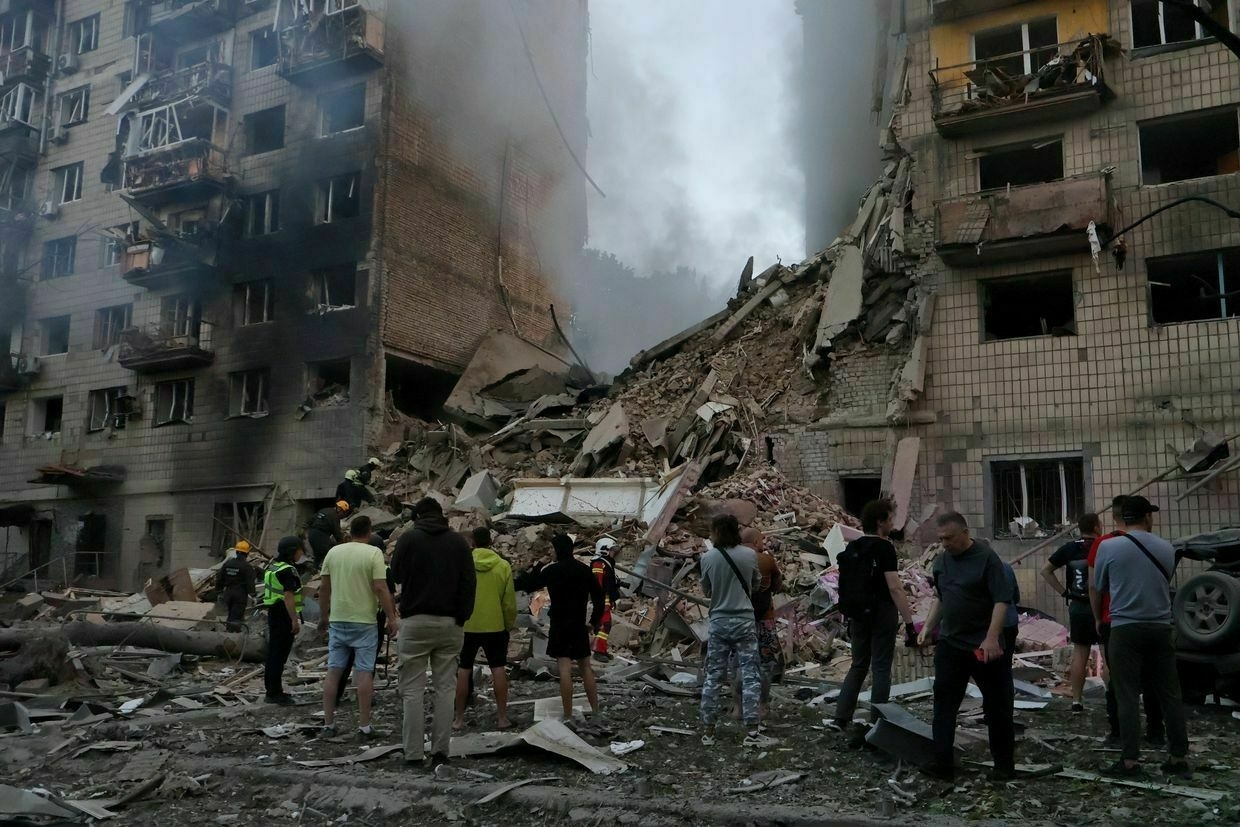
Sitting a few meters from the rubble of what used to be a nondescript nine-story residential building in Kyiv, Lilia rises to her feet every time another pile of debris is cleared from the site targeted by Russia during a mass overnight attack on June 17.
“We are waiting (as everyone) for the same thing,” says Victoria Smirnova, 37, Lilia’s mother-in-law, seated nearby. “The father was there."
The man’s third-floor apartment and the entire section of the building in the capital’s Solomianskyi district had completely collapsed.
“She (Lilia) ran to him after the first wave of drone attacks,” Smirnova told the Kyiv Independent. “He was cleaning up broken glass. The windows in the kitchen and on the balcony were shattered. He told her, ‘I’ll be home, there’s so much to do. I’ll stay in the corridor. I’m not going anywhere.'"
Minutes after Lilia left, a Russian cruise missile struck the building.The two women are among many waiting near the site, desperate for news about family members and acquaintances still missing in the aftermath of the overnight strike, the deadliest attack on Kyiv since the start of the year.
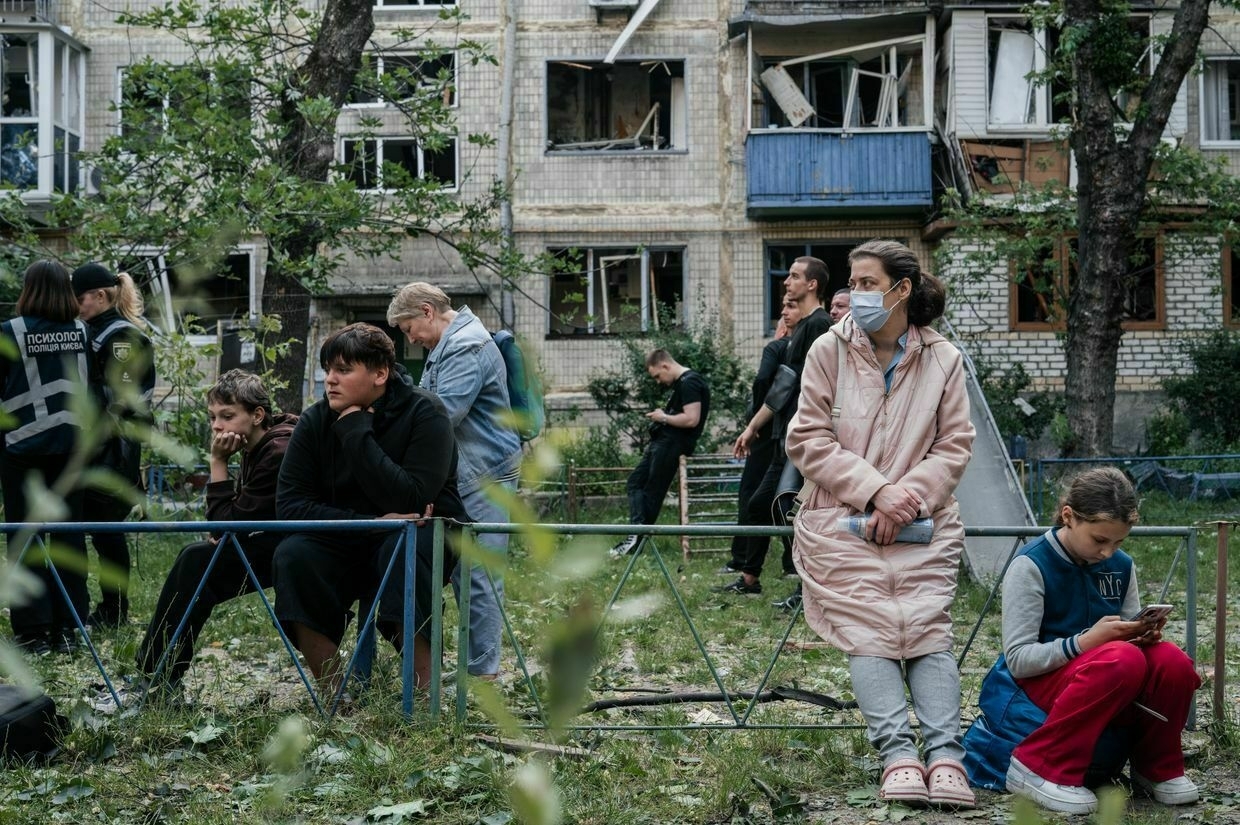
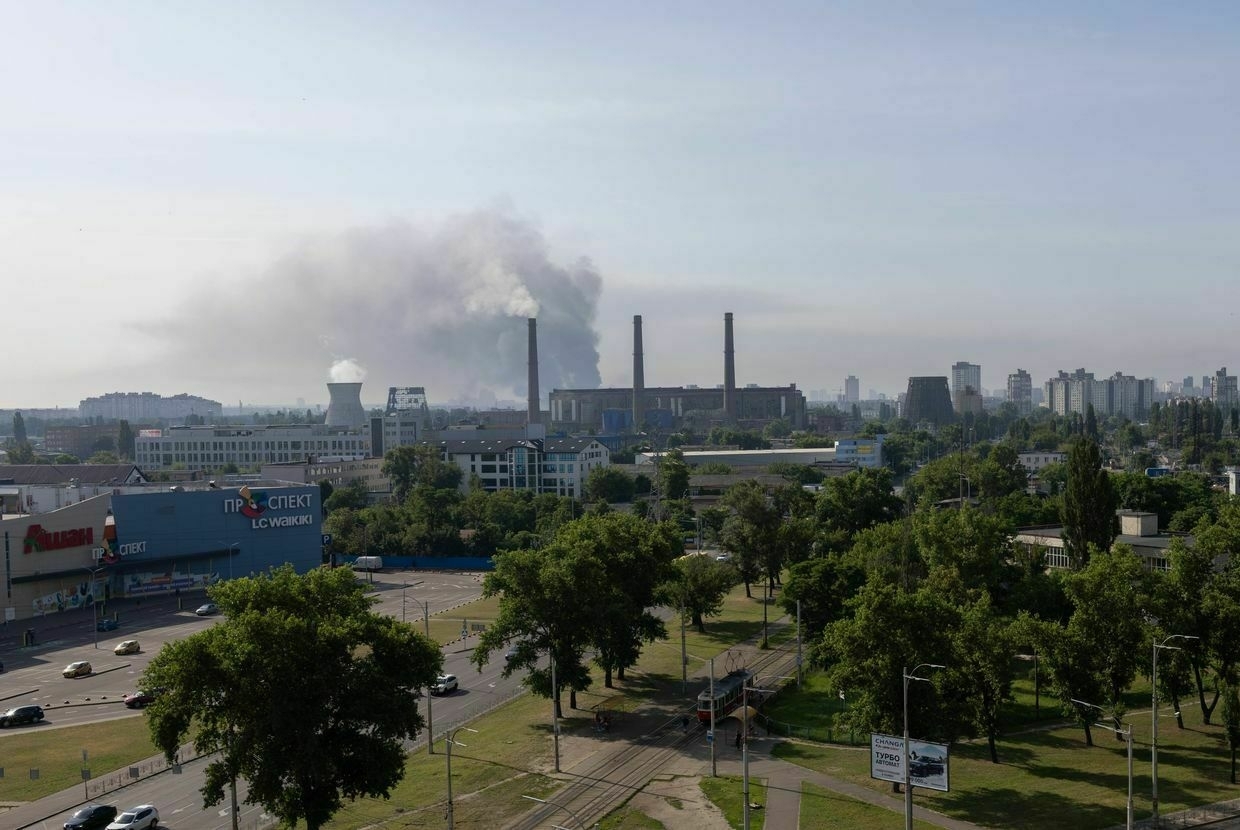
At least 14 people were killed in the capital, and 117 others were injured, according to officials. Two more people were killed in a Russian overnight attack on the southern city of Odesa.
Ukraine’s Air Force said Russia launched 472 aerial weapons overnight, including nearly 280 Shahed-type drones and 32 missiles. The strikes were primarily aimed at Kyiv.
Air defense forces intercepted 428 of those targets, including 239 Shahed drones, one Kinzhal ballistic missile, and 23 cruise missiles.
Mayor Vitali Klitschko also reported that Russian forces used cluster munitions during the attack.
Witnesses said the attack came in several waves — first drones, then missiles, then drones again. After the initial barrage, a lull in the strikes prompted some residents to leave their shelters.
Among them were Halyna Kushnirova, 72, and her son. They had just stepped outside when fresh explosions rocked the district. This time, they took cover in an underground passageway near their home.
"I'm in shock. I still can't fully grasp that this actually happened. I mean, I see it, but I can't process it.”
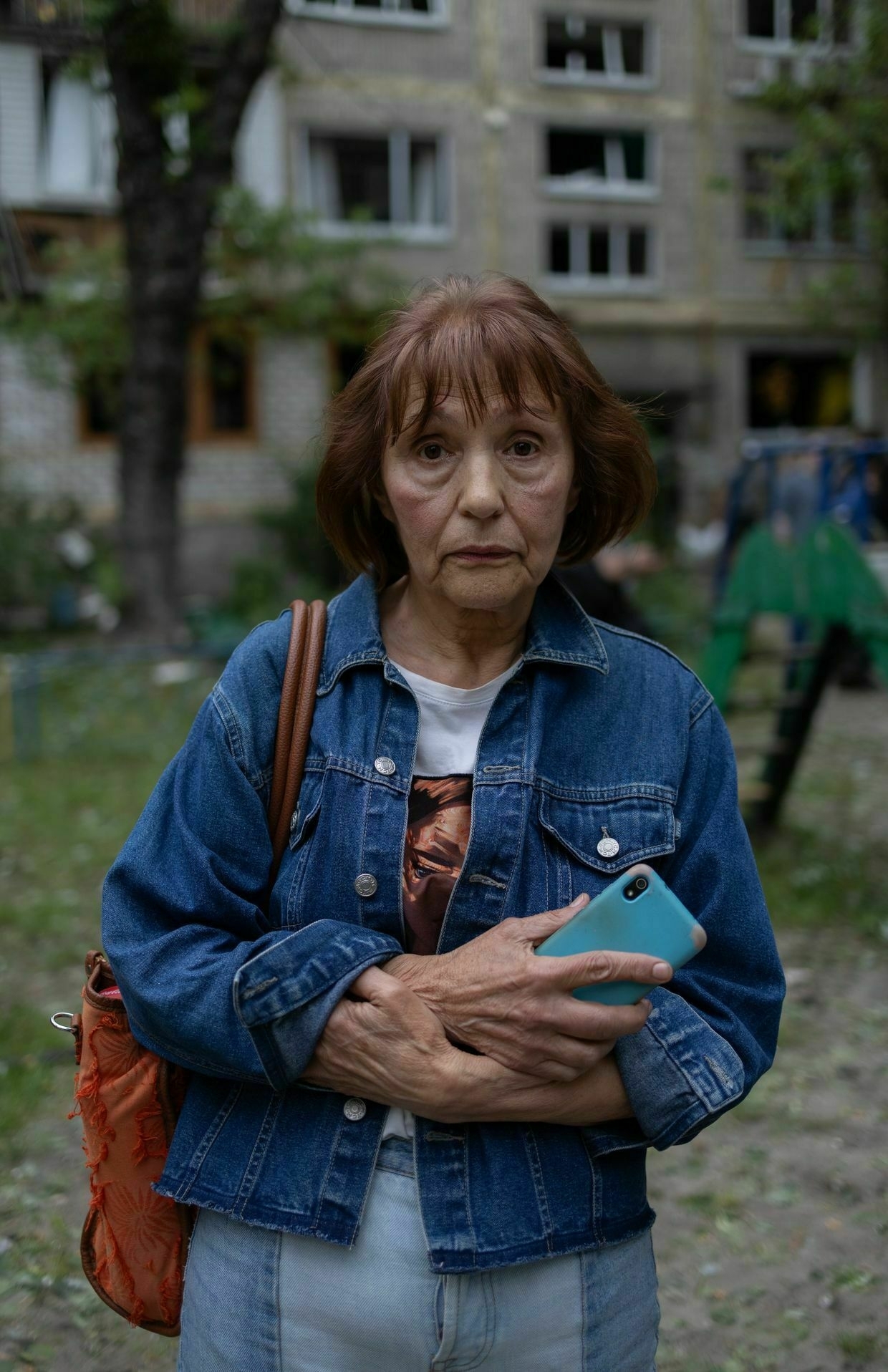
Halyna Kushnirova, 72, a retiree who lives in the house struck by a Russian missile, stands outside the damaged building in Kyiv, Ukraine, on June 17, 2025. (Anna Donets / The Kyiv Independent)
"Then there was this terrible whistling. It was horrible. Three missiles — with such a noise that my ears were ringing," Kushnirova said. "The explosion was so strong that dust, smoke, and sparks filled the passageway."
"I said immediately: it's our building (that was hit)."
She said her apartment, located in a neighboring section of the building, was heavily damaged.
The attack left a trail of destruction across Kyiv, damaging multiple residential buildings in several districts, along with critical infrastructure, a kindergarten, a student dormitory, and cars.
Russia launched its latest strike as the G7 summit was underway in Canada. On the day of the attack, President Volodymyr Zelensky was expected to meet with his U.S. counterpart, Donald Trump. However, the American president left the summit a day before the meeting.
Trump has declined to comment on the attack and refrained from criticizing the Russian regime.
"I'm in shock. I still can't fully grasp that this actually happened. I mean, I see it, but I can't process it," Kushnirova said. "I wish Trump were here next to me to see what his buddy (Russian President Vladimir) Putin is doing."
 The Kyiv IndependentOlena Goncharova
The Kyiv IndependentOlena Goncharova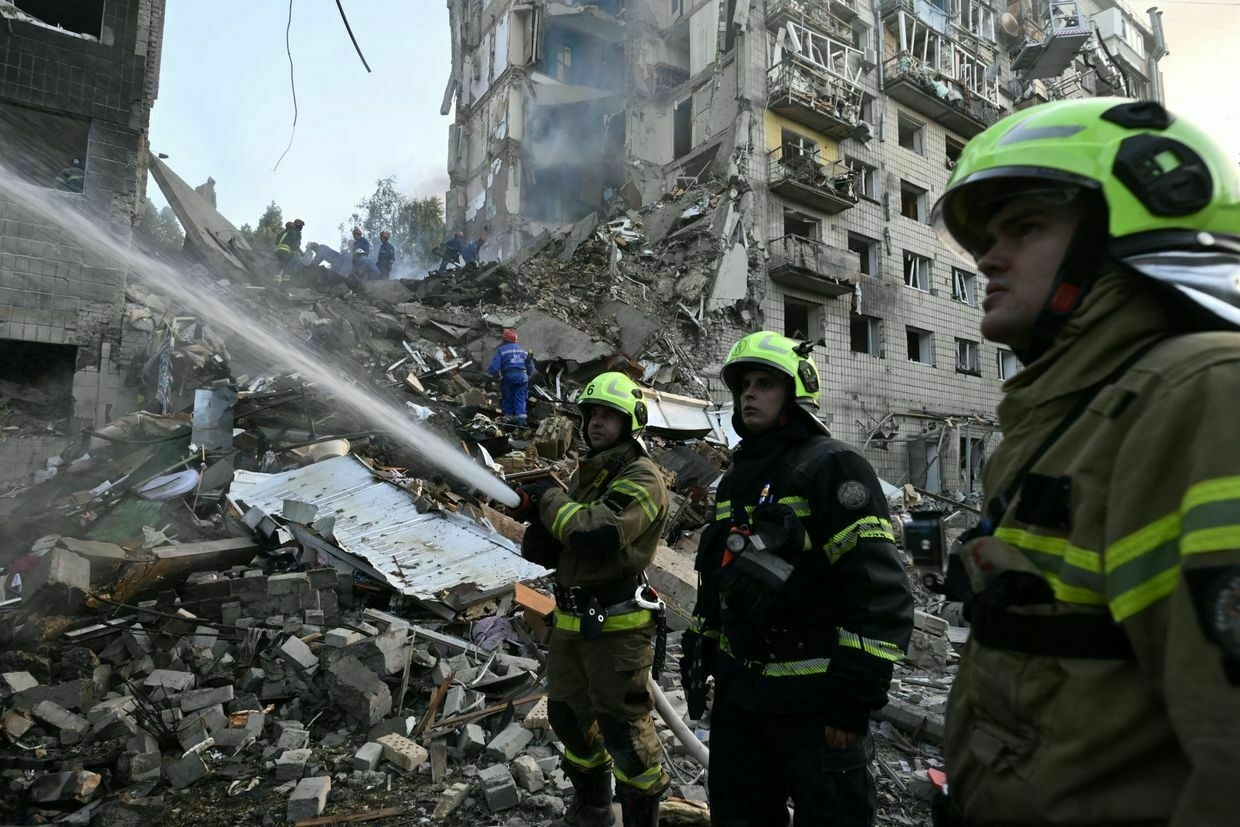
Escaping the worst
On the opposite side of the city, residents of Kyiv's left bank Darnytskyi district were also wrestling with the aftermath of the Russian attack.
Around 5 a.m., a Russian drone slammed into one of the high-rise apartment buildings. The strike left several people wounded, destroying an outer wall and rooms in several apartments and shattering windows throughout the neighborhood.
"My children were already in the bathroom. (My wife and I) were in the corridor. We heard the Shahed's descent, then the hit," said Ivan Serebrianskyi, 42, an entrepreneur who lives in the damaged building.
"The windows were shattered, and smoke covered the place. We went outside and checked that everyone in the family was alive and well. It's the main thing," he told the Kyiv Independent outside his entrance as the residents cleared up the driveway.
Serebrianskyi added that after the overnight attack, he wants his four and 13-year-old daughters to move abroad "within a few days."
"The worst part is that we can't plan at all for when it might end," Serebrianskyi said.
"Perhaps there will be a world leader other than our president who will be able to take a serious stance with this crazy neighbor of ours."
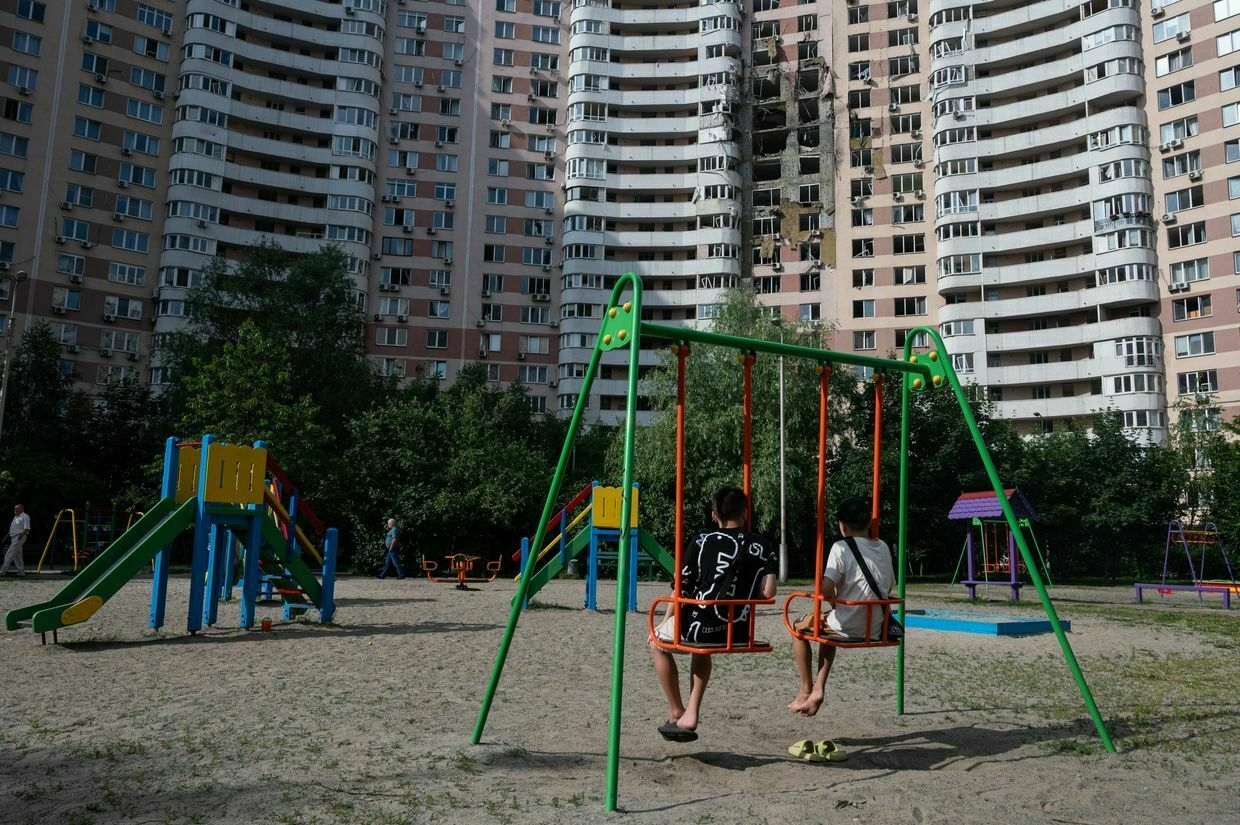
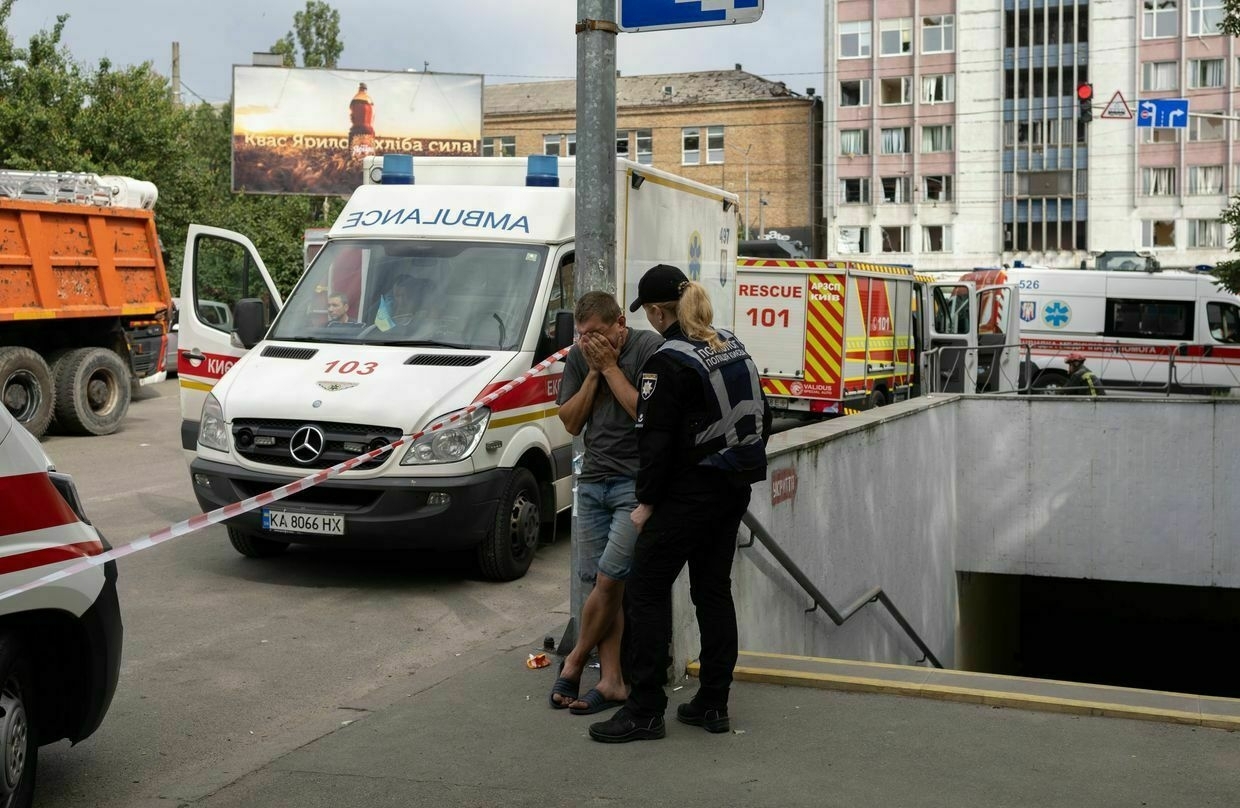
Serebrianskyi added that he was amazed at Trump's meek position in the peace talks with Russia.
"I run a small business myself, but I can say 100% that not everything in business can be solved by negotiation. Sometimes you need radical changes," he said.
Having escaped the worst, some residents of the Darnytskyi district started clearing up the debris almost immediately after the impact.
"Literally half an hour (after the attack), we started clearing up our entrance. Shattered common doors, window frames, glass," said Tatiana Bratus, 50, a building resident whose car was damaged in the attack.
In the late afternoon, Bratus and other residents who worked to clear the aftermath of the strike were joined by unlikely volunteers.
Around a dozen kids from nearby houses were sweeping up glass and litter off the sidewalk in front of the building, having procured brooms and scoops from the neighbors.
When asked by the Kyiv Independent's reporters why the children were cleaning up, one of the boys in the group responded: "Because it must be done."
Natalia, 28, a resident of a nearby building who declined to share her last name, said that she came to help with her friend's children, aged 10 and 12. The children volunteered to help after they read in the local volunteer group about the need for helpers at the location.
"The rest were just a group of kids playing around," Natalia said. "They approached us and said they wanted to help. We were not banned from it, so it seems safe here."
"No one forced them," Natalia added. "The nation is growing up strong. They are not going to look past the troubles of others."
 The Kyiv IndependentDaria Shulzhenko
The Kyiv IndependentDaria Shulzhenko
